The former National Chief explained his support for the Hwy 17 off-reserve trading post and held a book launch for his autobiography, The Last President.
MASSEY, ON – Over forty people came out to hear former National Chief Del Riley speak at the grand opening of the Highway 17 Dispensary and Trading Post in Massey on August 17th, 2023. The trading post is the latest sovereign cannabis dispensary to open up off-reserve as Indigenous entrepreneurs move beyond the Indian Act and assert Aboriginal and treaty rights to their traditional territory. There are now over 35 such off-reserve Indigenous cannabis shops in Ontario asserting these rights, and several other shops in Nova Scotia and New Brunswick that are doing the same.
Prior to the meeting, Chief Riley delivered a letter about the opening of the trading post to Mayor Kevin Burke and the Council of the Township of Sables-Spanish Rivers as well as to the local OPP detachment. The letter explained how Chief Riley interpreted Sections 25 and 35 of the Canadian constitution and the United Nations Declaration on the Rights of Indigenous People Act as protecting the rights of Indigenous people to operate trading posts on their traditional territory. The letters, written on behalf of the trading post, also contained an offer from Chief Riley to have further discussions on the matter with officials should the town or police have any questions or concerns.
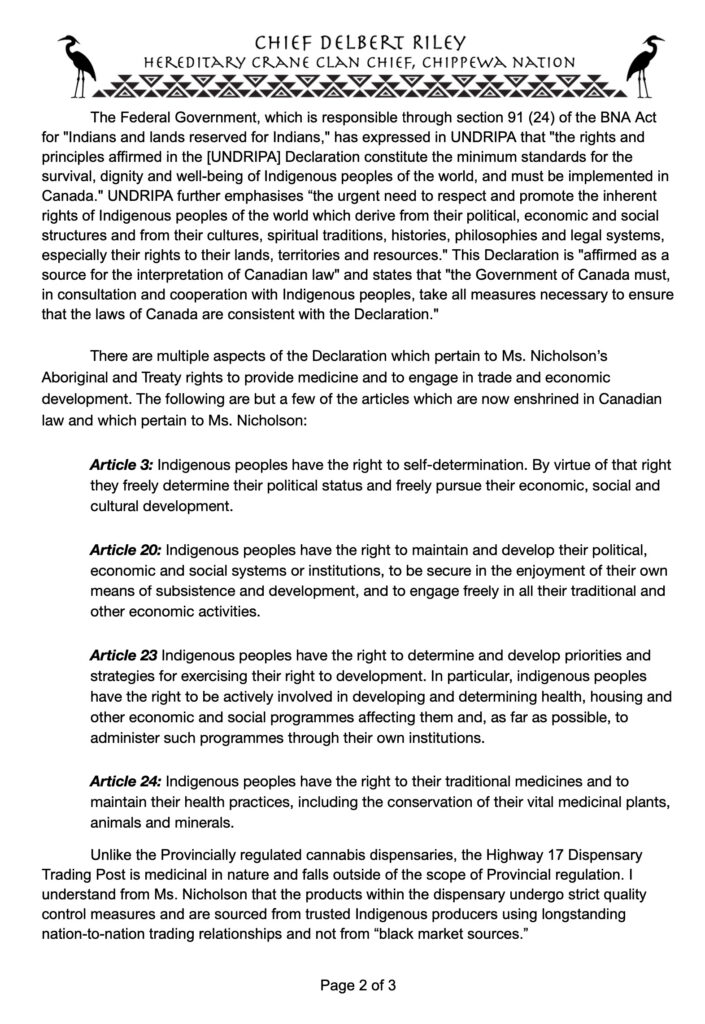
Page 1 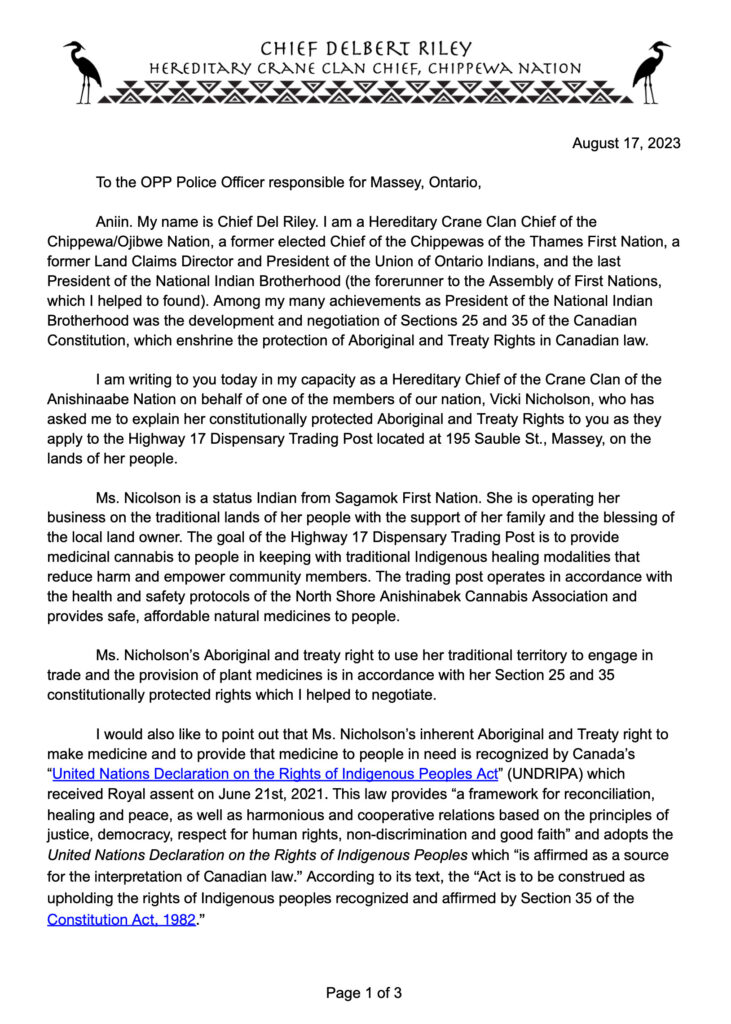
Page 2 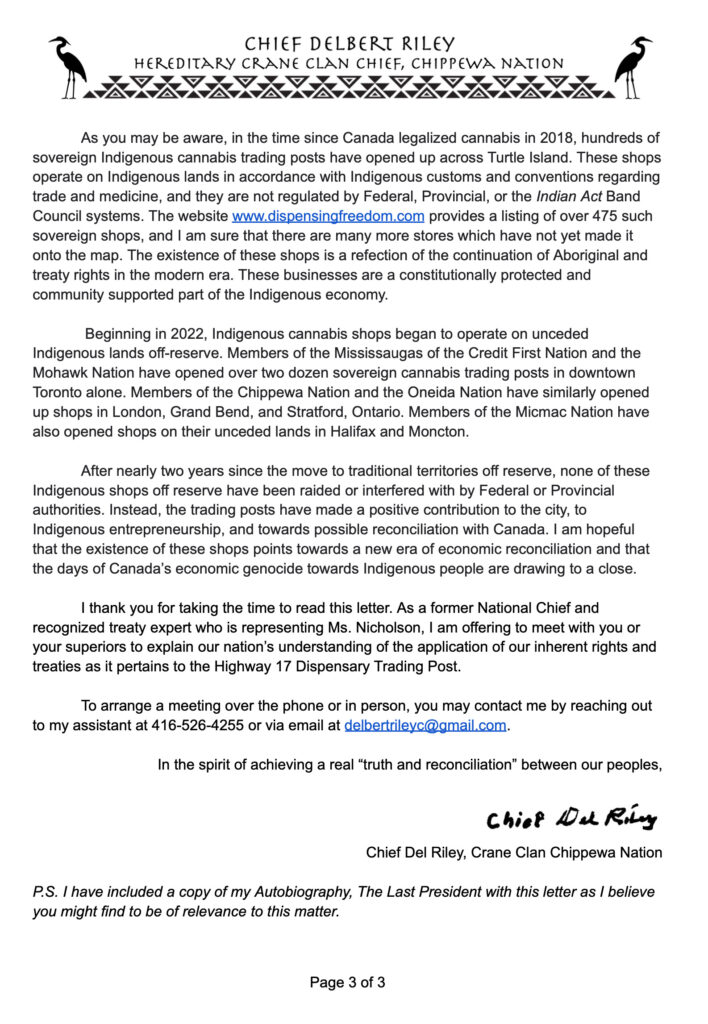
Page 3
A book launch for The Last President
The Highway 17 Dispensary and Trading Post is located in the former location of Massey’s Royal Bank. Chief Riley spoke in main room, and framed his talk around his autobiography, The Last President. Written with his son Len Riley, the book covers the main events in Chief Riley’s eight decades of political struggle for Indigenous rights and provides fascinating insights into many historical events in recent Canadian history.
Abducted by the RCMP from his family at the age of 6 and forced into the notorious “Mush Hole” Indian Residential school in Brantford, Chief Riley survived against the odds and fled Canada’s racism to become a machinist in the United States. Returning home to the Chippewas of the Thames First Nation in the early 1970s after an accident, Chief Riley became a land claims researcher for the Union of Ontario Indians, and later the regional Ontario Chief. He was then elected into a position of national leadership as the President of the National Indian Brotherhood. From this position, Chief Riley negotiated the protection and entrenchment of Aboriginal and treaty rights in the Canadian Constitution Act of 1982.
In his talk, Chief Riley stressed that the Indigenous rights stemmed from Indigenous nationhood and the international treaties made between nations, and that they could not be abrogated by Canada’s parliament or even the British Crown.
Referring to the intent behind Section 25 of the Constitution, Chief Riley said that its real meaning “is that nobody else can describe what your rights are except the ones that made a treaty.” Chief Riley clarified that by that he meant Indigenous elders but not the current Chiefs and Councils created by John A. MacDonald, which only have the authority given to them by the Indian Act, “which is nothing” because “they’re really servants of the Minister of Indian Affairs who controls them.”
Chief Riley explained that Sections 25 and 35 were written “in such a way that these are actually the basic principles for all Aboriginal people around the world…. I say that because you are not Canadian, you have your own nationhood and the Indian Act. The Indian Act is something that the government controls, but they don’t control your nation. So your real authority rests with all of the people. In the past, and we’ve always run our systems with our clans, and we’ve got to relearn that. I think the most important thing is that your nationhood decision lies with all the other people, not just one group that’s there – but everybody.”
Building a real Indigenous economy
Because of the inability of the Indian Act Chiefs and Councils to develop a real economy for Indigenous people or to act outside the boundaries of the reserves, Chief Riley pointed out that Indigenous entrepreneurs have to “go outside” of the Indian Act and “use their rights.” As a result of exercising these Aboriginal and treaty rights, there are now over 35 sovereign Indigenous trading posts in downtown Toronto and shops in Moncton, Halifax, Ottawa, Stratford, Grand Banks, Temagami and London. This is in addition to another 500 or so sovereign Indigenous cannabis dispensaries on reserves across Turtle Island.
This kind of Indigenous economic growth outside of the Indian Act and Cannabis Act is for Chief Riley the key to making real and lasting change for Indigenous people. “We eliminate what in my mind is the most god awful thing we have to face, and that’s the racism in the Indian Act. And even currently now the treaties supersede it. Your treaties are just so powerful and the thing you have to learn about those treaties is what are all of those rights your nations have.” Chief Riley also spoke to the similarities between different Indigenous traditional systems and pointed out how the rights codified in Mi’kmaq treaties with the Crown also apply to Anishinaabe people.
Chief Riley stressed the importance of the Rowan Proclamation of 1854 and the Indian Protection Act of 1850 and how they detail “a lot of your rights that actually are still there because hey, these proclamations can only recognize rights, they can’t create or take away rights.” The Rowan Proclamation states that Indians are tax free in all of Upper Canada, and this reflects a longstanding refusal of Indigenous people to pay taxes to the Crown, since they are allies and not subjects.
Chief Riley’s talk was well received by attendees. In the question and answer session that followed, Violet Boissoneau reflected on her hopes for the future and what the opening of the Highway 17 Trading Post meant for her. “In terms of the relationship between Sagamok and Massey, we’ve begun to understand each other and acknowledge the land that Massey is built upon. That is a really good movement, because it begins to teach our young people our history, and for them to be proud of who we are, and to have that understanding and empowerment to move forward as who we are as Anishinaabe people. “
The Highway 17 Dispensary and Trading Post is located at 195 Sauble St. in Massey and can be reached at 705-865-1010. They are open from 11am-5pm Saturday and Sunday, closed on Mondays, and open from 5:30pm to 8pm Tuesday to Friday.

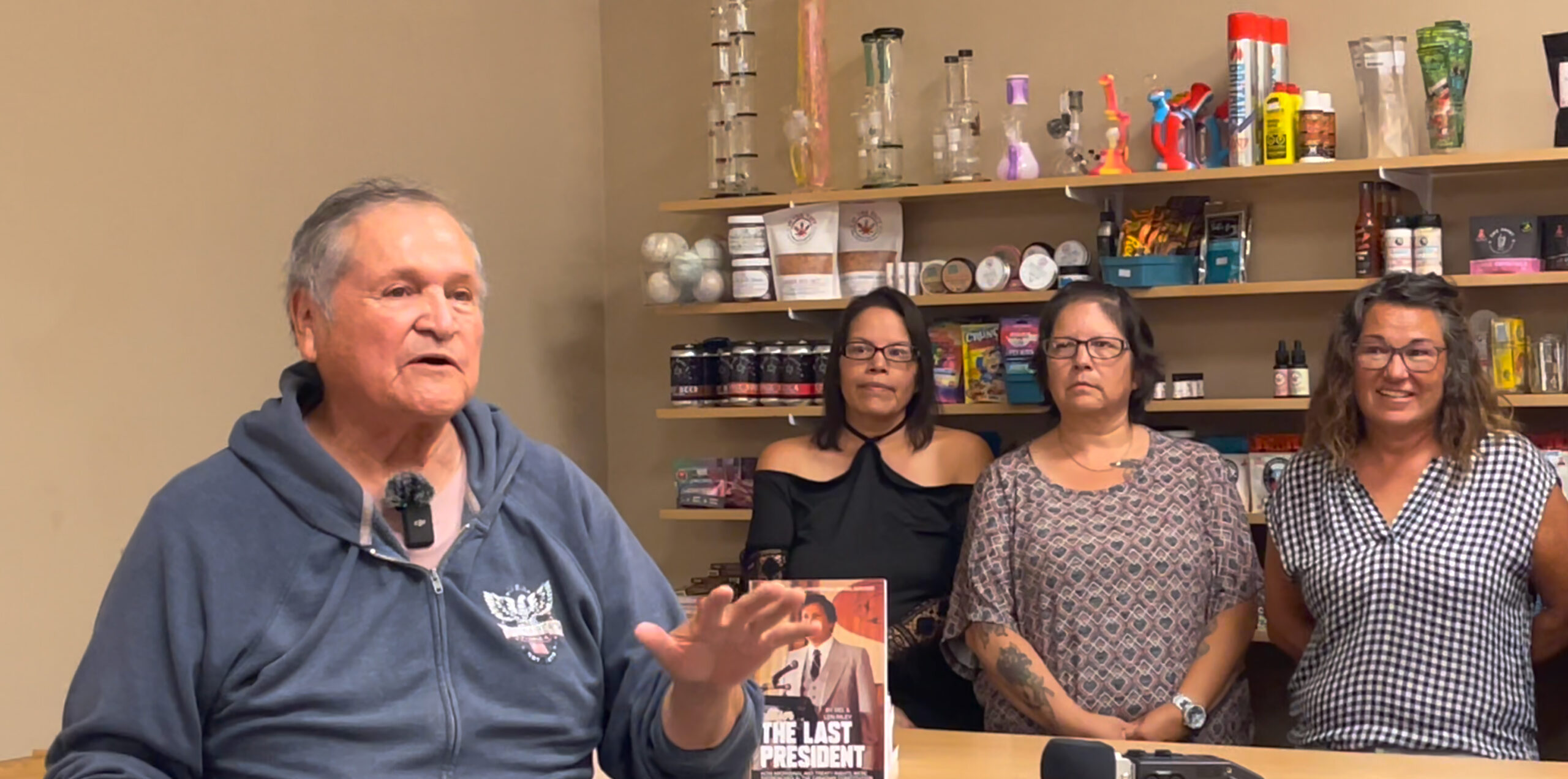
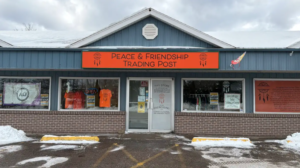


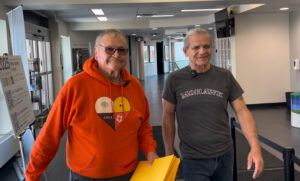
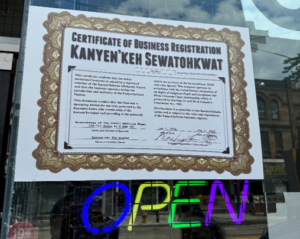
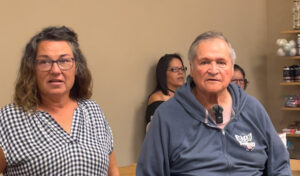
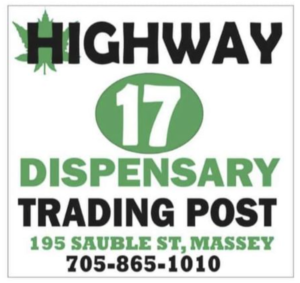





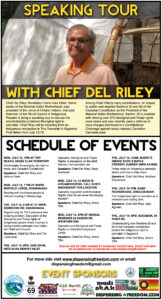
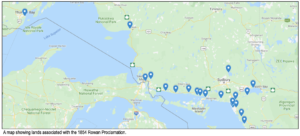
Comments are closed.